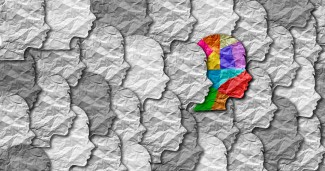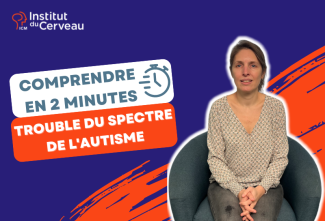The symptoms of autism spectrum disorders or autism continue into adulthood and therapeutic treatments therefore need to continue in severe cases.
Supporting people with ASD
Early support can help to alleviate signs of autism, and improve functioning and quality of life for the patient. Age-adapted support is useful for the patient at all life stages.
This often involves multidisciplinary, coordinated support that takes into account the person’s individual characteristics.
These interventions are set out in good clinical practice recommendations by France’s health authority:
- Educational, developmental and behavioral interventions aimed at teaching the child or adult socially appropriate behaviors, making appropriate requests and structuring time and space to develop social inclusion, self-awareness and learning skills and reduce behavioral problems. These can be used simultaneously in integrative approaches.
- Communication support, aimed at improving communication, whether through language or by learning alternative means of communication (enhanced or alternative communication).
- Psychomotor and sensory-motor support, aimed at working on balance, motor coordination, posture, sensory issues, etc. Occupational therapy can help to put adapted arrangements in place.
- Cognitive psychological support, to work on cognitive difficulties (cognitive remediation) or social difficulties (training in social skills, social cognition remediation) and to better understand the difficulties experienced by the patient in adapting to them (therapeutic education) individually or in a group setting.
- Social support to get suitable assistance and/or peer support in place (associations, mutual support groups, help from peer health mediators)
- Support for loved ones (parents, siblings, and potentially spouses in adulthood), which can include support groups, awareness-raising sessions or training sessions, therapeutic education, etc.
- Training and employment support, to help the person with ASD to train and find a job suited to their profile, and then adapt their workplace in ways that help them remain in work under the right conditions.
- Medical assistance for any associated disorders (psychiatric and/or non-psychiatric). There are no medicines specifically aimed at reducing the signs of autism. However, if the person is experiencing one or more associated disorders, they may need drug treatment. If the person has behavioral issues, drugs should not be prescribed as a first step (functional analysis of behavior and seeking a somatic cause should be the priority), but in some cases it may help to reduce problem behaviors. The prescription must then be reassessed at regular intervals.


